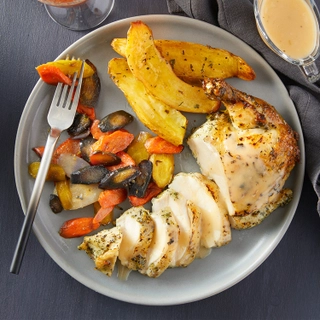Language is constantly evolving, shaped by culture, history, and modern communication. One interesting term that sparks curiosity is pollaste. Although it might sound unusual at first, pollaste carries cultural and linguistic importance in different contexts. Many people come across this word online or in conversation and wonder what it truly means. In this article, we will explore the origins of pollaste, its applications, and why it has become a point of interest in today’s world.
What Does Pollaste Mean?
The word originates from Spanish, where it refers to a young chicken or rooster. In traditional settings, it was used in farms and kitchens to describe poultry raised for food. Over time, however, the meaning has expanded in both and metaphorical ways.
In modern language, can:
-
Refer directly to poultry in culinary or agricultural contexts.
-
Be used in slang to describe someone in a humorous or playful way.
-
Appear in cultural phrases, memes, or online jokes where animals represent human traits.
This diversity in meaning makes more than just a farm-related word.
The Historical Background of Pollaste
Historically, farming communities valued poultry highly, not only as a food source but also as part of cultural traditions. Words grew from rural life, where naming and categorizing animals was part of daily communication.
With Spanish colonization and cultural exchange, terms like spread beyond their local roots, making their way into literature, jokes, and even modern online conversations.
Pollaste in Culinary Culture
In food culture, pollaste is often associated with chicken-based dishes. Many traditional recipes across Spanish-speaking countries use as the base ingredient for hearty meals. Some examples include:
-
Stews and soups made from tender young chicken.
-
Grilled or roasted pollaste, often served with herbs and spices.
-
Family gatherings, where pollaste-based dishes are a symbol of comfort and tradition.
Thus, pollaste is not just a word but part of culinary identity.
Pollaste as a Slang Term
Beyond its literal meaning, has also entered everyday slang. In some regions, it is used to describe a person in a teasing, lighthearted way. Similar to how English speakers might jokingly call someone a “chicken,” carries playful undertones.
For example:
-
A friend avoiding a challenge might be humorously labeled a pollaste.
-
Online memes sometimes pair the word with funny chicken images to symbolize hesitation or silliness.
This cultural flexibility adds to the charm of the word.
The Role of Pollaste in Online Culture
With the growth of social media, quirky and unique words like find new life. Memes, short videos, and digital art often feature animals, and chickens are no exception. The word appeared in:
-
Reddit and Twitter jokes where animals are given human-like personalities.
-
TikTok cooking videos where creators show how to prepare pollaste recipes.
-
Language learning communities that highlight interesting or uncommon words.
As a result, pollaste is not just a word stuck in tradition but one that thrives in digital spaces.
Pollaste and Cultural Identity
Language reflects culture, and a great example of how simple words hold deeper meaning. For Spanish-speaking communities, it represents:
-
Agricultural traditions tied to family life.
-
Culinary pride with dishes passed down through generations.
-
Playful expression in everyday conversation.
Even as the world modernizes, words help preserve cultural identity.
Why Pollaste Attracts Curiosity
Several factors explain why people are intrigued by today:
-
Uncommonness – It’s not a word you see often, making it stand out.
-
Multiple meanings – From food to slang, it sparks curiosity.
-
SEO potential – Unique keywords like offer opportunities for writers and creators to explore niche topics online.
This combination makes it both linguistically and digitally valuable.
The Future of Pollaste
Looking ahead, likely to remain relevant for both cultural and digital reasons. Its culinary roots ensure it will always have a place in kitchens, while its playful slang usage and online presence guarantee it will keep showing up in memes, posts, and conversations.
For language learners, it also serves as a great example of how words evolve with time and culture.
Conclusion
The word pollaste is a reminder of how language connects history, food, culture, and humor. From its origins as a term for young chickens to its modern use in slang and online memes, showcases the richness of everyday words. Whether you encounter it in a recipe, a joke, or a social media post, pollaste reflects the playful and evolving nature of human communication.

